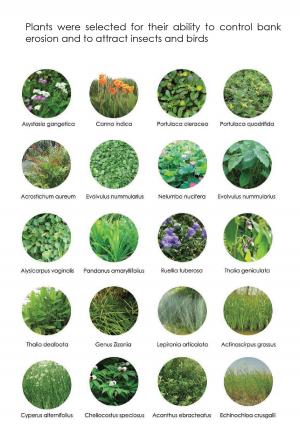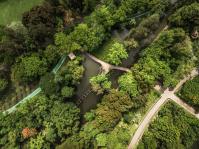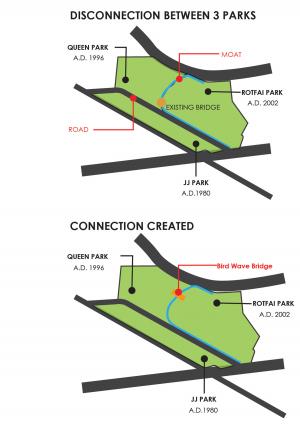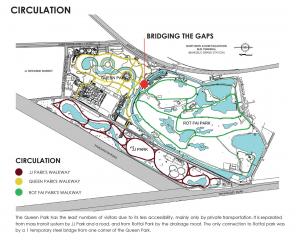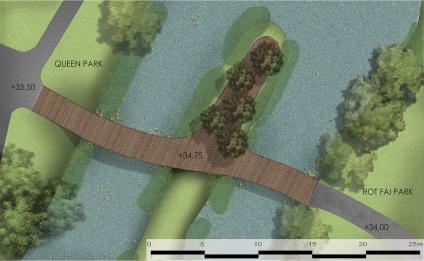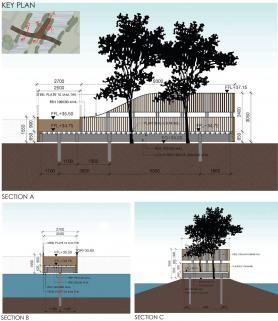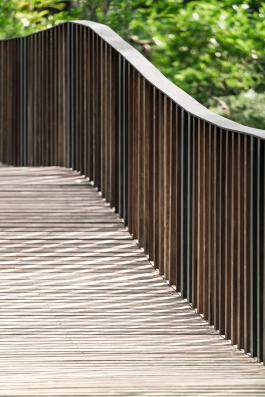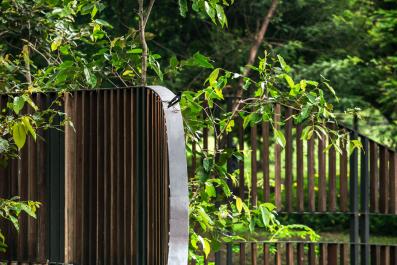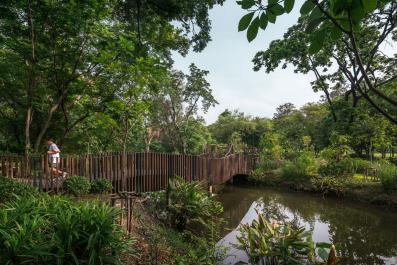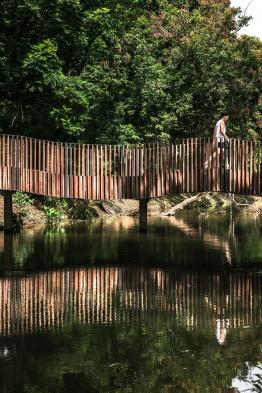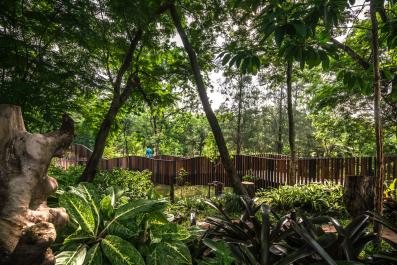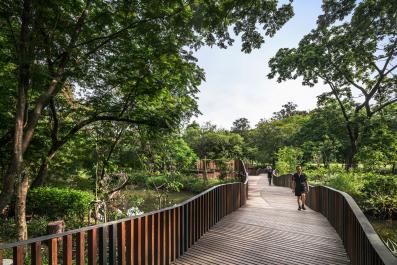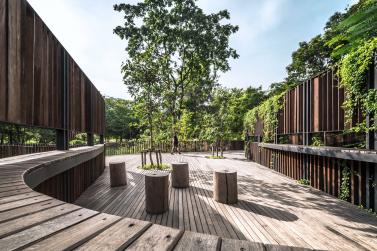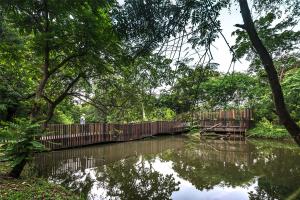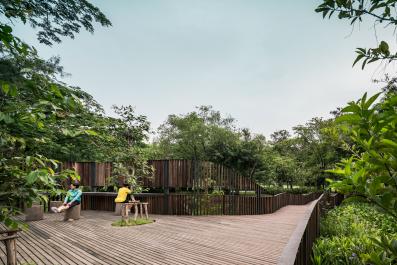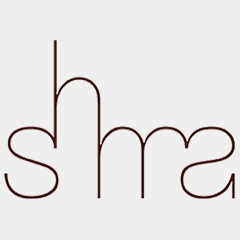
? Wison Tungthunya
位于泰國(guó)曼谷城市北部的鳥(niǎo)翼橋(Bird Wave Bridge)是一座長(zhǎng)50米的人行天橋���,主要目的是從屋里環(huán)境上連接Rotfai公園和Queen Sirikit公園,同時(shí)也將公共景觀建造和對(duì)城市公園的認(rèn)知連接在一起。曼谷的人均公共綠地面積僅約3平方米��,而世界衛(wèi)生組織(WHO)建議的城市人均綠地面積至少為9平方米���,況且曼谷的人均3平方米已經(jīng)是包含了城市公共綠地和道路隔離帶�����。顯然�����,在城市的生物多樣性增加和利用方面�,嚴(yán)重缺少綠地空間��。
The Bird Wave Bridge, a 50 metre long pedestrian bridge crossing over small watercourse from Rotfai Park to H.M. Queen Sirikit Park at the Northern part of Bangkok aims to bridge not only the physical gaps but also the public projects’ complicated process and general perception of urban parks.The public green area in Bangkok is only about 3 m2 per person as opposed to minimum 9m2 per person as suggested by The World Health Organization (WHO) that every city should have. The 3 m2 per person figure already compiled every green area possible from large parks to planted road median. Obviously not only the city lacks green space in terms of area but also the sizeable ones where greater capacity enables broader use and increase of urban biodiversity.
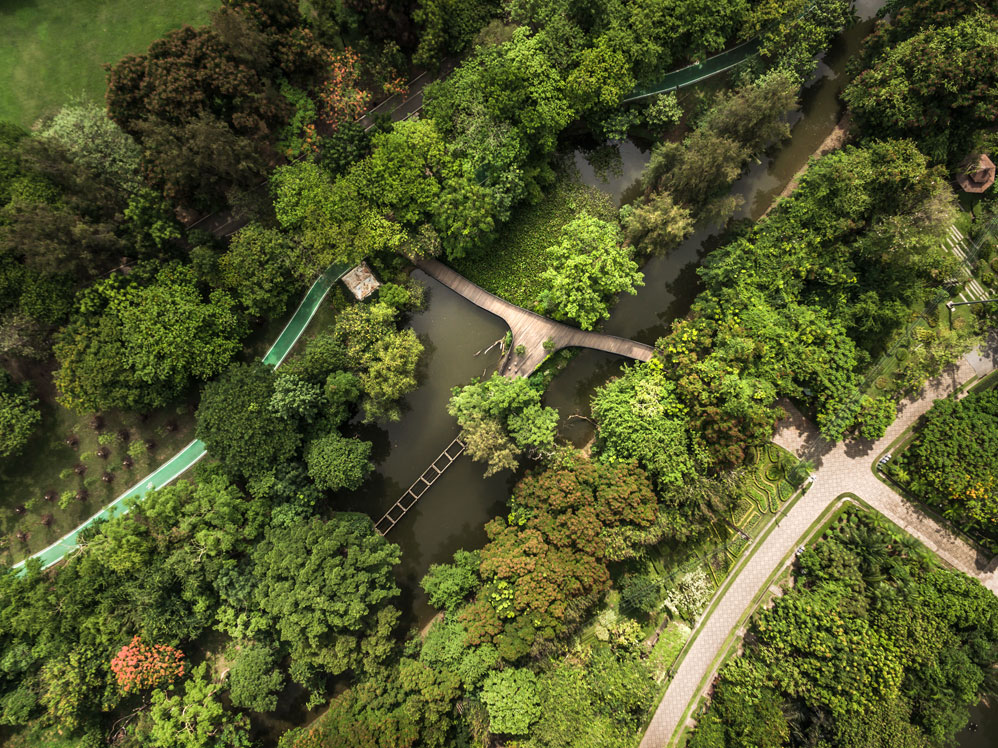
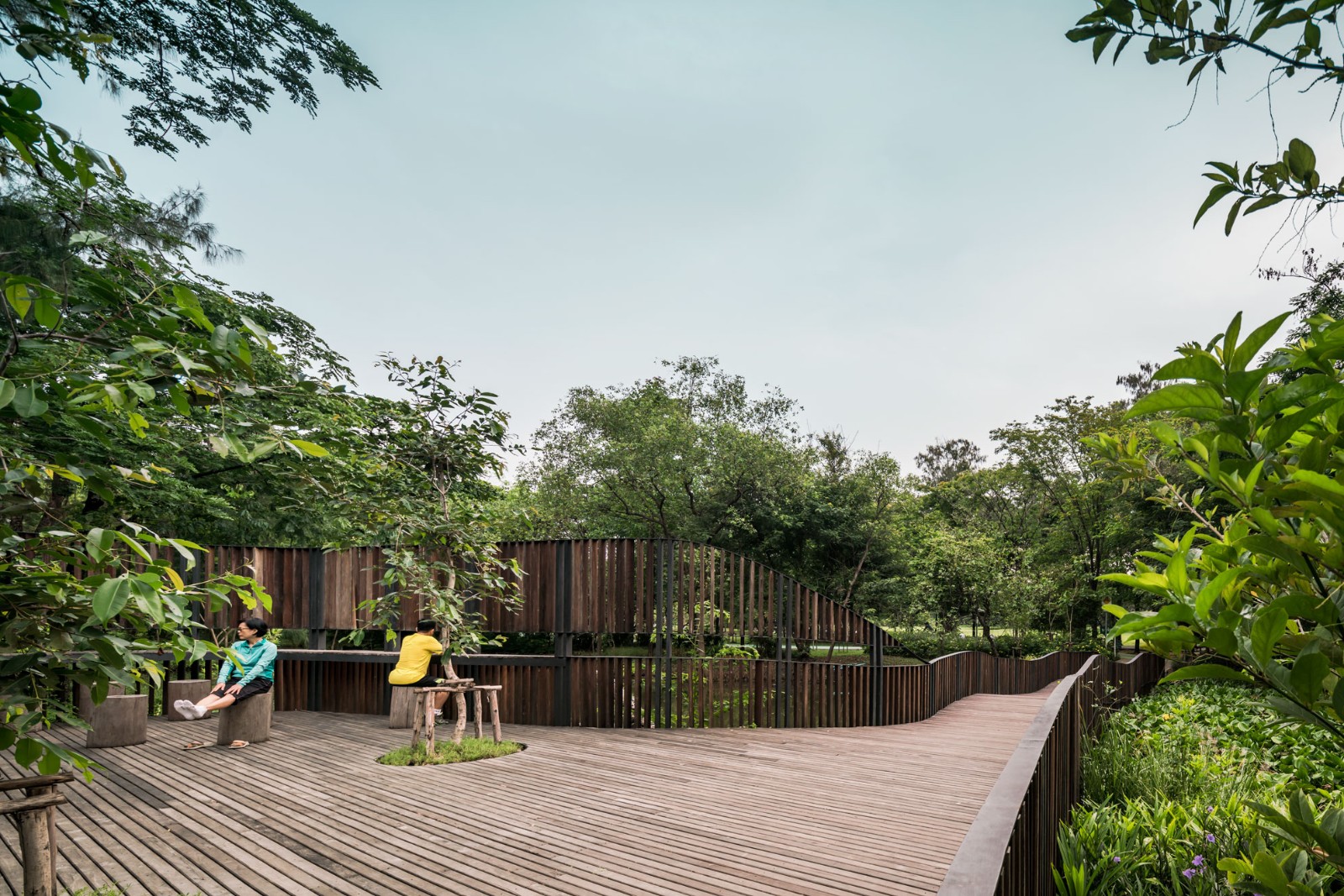
? Wison Tungthunya
在Chatuchak地區(qū)內(nèi)的Rot Fai 公園���、H.M. Queen Sirikit 公園��、Jatujak 公園三個(gè)公園彼此相鄰����。盡管Queen 公園隸屬于H.M. Queen Sirikit 公園基金會(huì)����,但這三個(gè)公園都均受曼谷市政府(BMA)公共公園部門(mén)的管制。三個(gè)公園分別于2002年����,1992年和1980年正式向公眾開(kāi)放,其總面積為116公頃���,這使他們成為了曼谷區(qū)內(nèi)最大的公園����,為2019年���,在Queen公園西部建設(shè)的交通運(yùn)輸樞紐帶來(lái)無(wú)限的發(fā)展前景����。未來(lái)的城市發(fā)展將使該地區(qū)人口密度更高�,對(duì)休閑綠地的需求也越來(lái)越大。
Within Chatuchak district, 3 main public parks are situated next to each other. The Rotfai Park, The H.M. Queen Sirikit Park (widely referred to as the Queen Park) and The Jatujak Park (nick name JJ Park). All the parks are under care of Public Parks Department of Bangkok Metropolitan Authority (BMA) even though the Queen Park is owned by H.M. Queen Sirikit Park Foundation. They were opened to public in 2002, 1992 and 1980 respectively. The area of 3 parks combined is 116 Hectare which will make it the biggest public park in Bangkok. Its full potential will greatly contribute to the city as Chatuchak District is set to become Bangkok’s new rail transport hub when Bangsue Grand Station opens in 2019 on the West of the Queen Park. The future urban development will see the district with more density and more need of recreation green space.
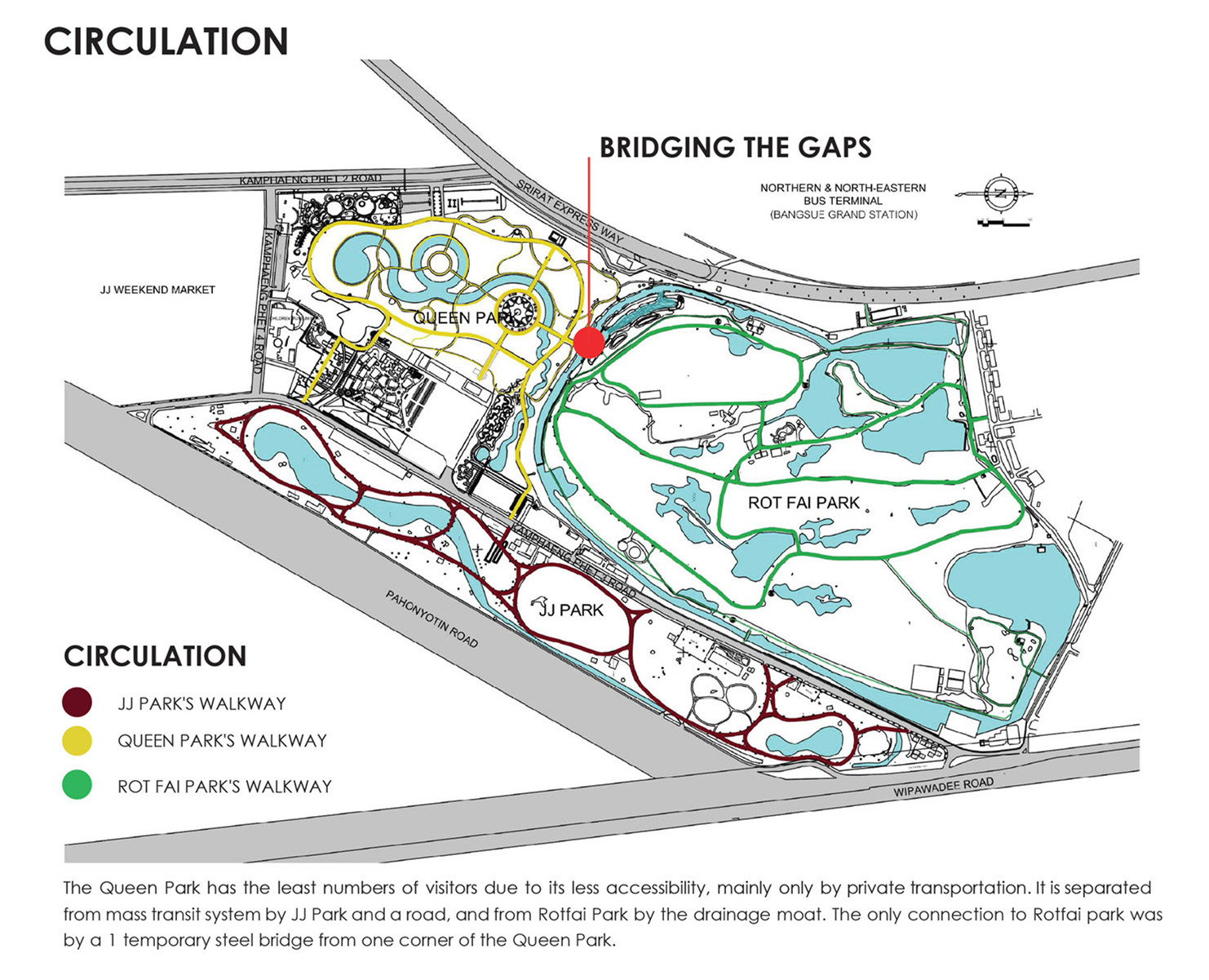
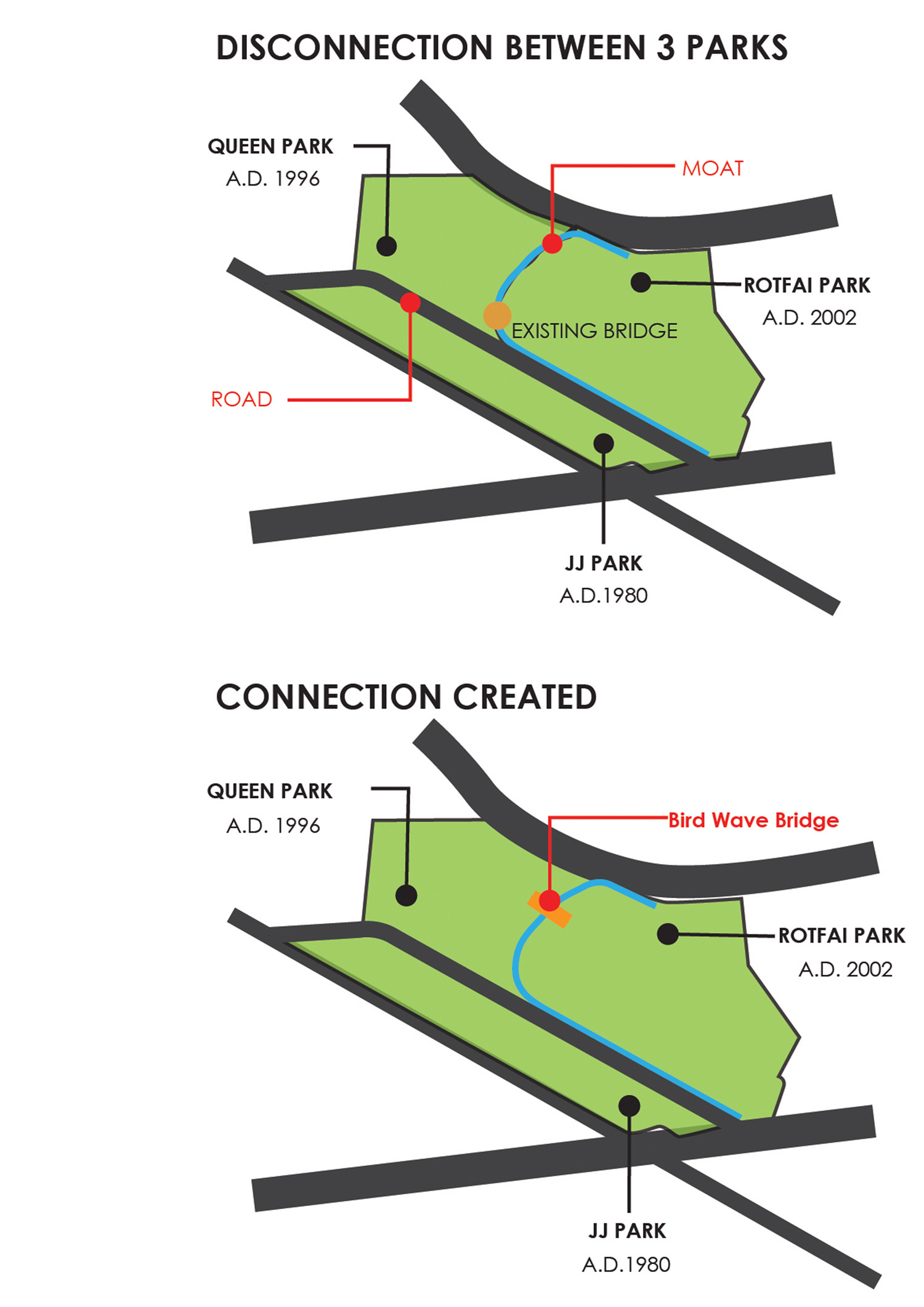
? shma
然而��,由于土地所有權(quán)的問(wèn)題�����,公園相關(guān)部門(mén)之間的協(xié)調(diào)變得異常復(fù)雜和緩慢,加上每個(gè)公園的概念和計(jì)劃的差異以及使用者和公眾對(duì)現(xiàn)有公園的使用和樹(shù)木砍伐問(wèn)題等�����,項(xiàng)目被擱置����。目前,JJ公園擁有適合進(jìn)行各種休閑活動(dòng)的大草坪�,并且毗鄰Mass交通樞紐和地鐵站,為公園提供了人流�����。原本屬于國(guó)家鐵道管理局高爾夫球場(chǎng)的Rotfai公園����,如今也因蜿蜒迷人的自行車(chē)道而受到市民的喜愛(ài)。
However, BMA’s master plan to combine the 3 parks since 2008 has not been realized due to difference in land ownership resulting in the complicated inter-authority coordination, the difference in each of the parks’ concepts and programs and public concerns over the impact on existing use and cutting of trees. Users of road that cuts through these parks were also against the plan.
Currently, JJ Park, with its properly mowed open lawn suitable for leisurely activities and its location next to Mass Rail Transit as well as Underground stations, is well used throughout the week while Rotfai Park, formerly a State Railways Authority of Thailand’s golf course, is most popular during weekend for its biking route through photogenic rolling mounds.
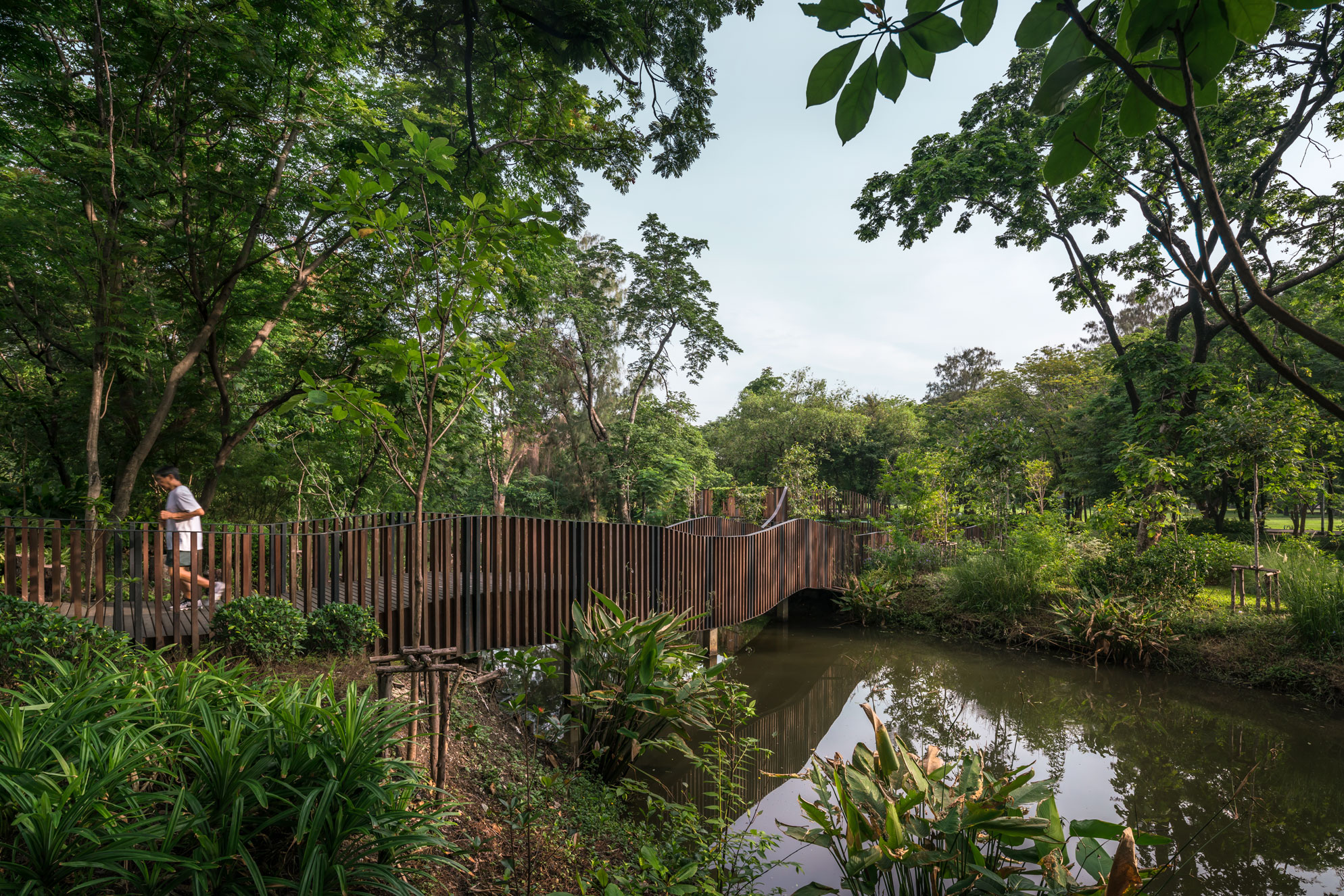
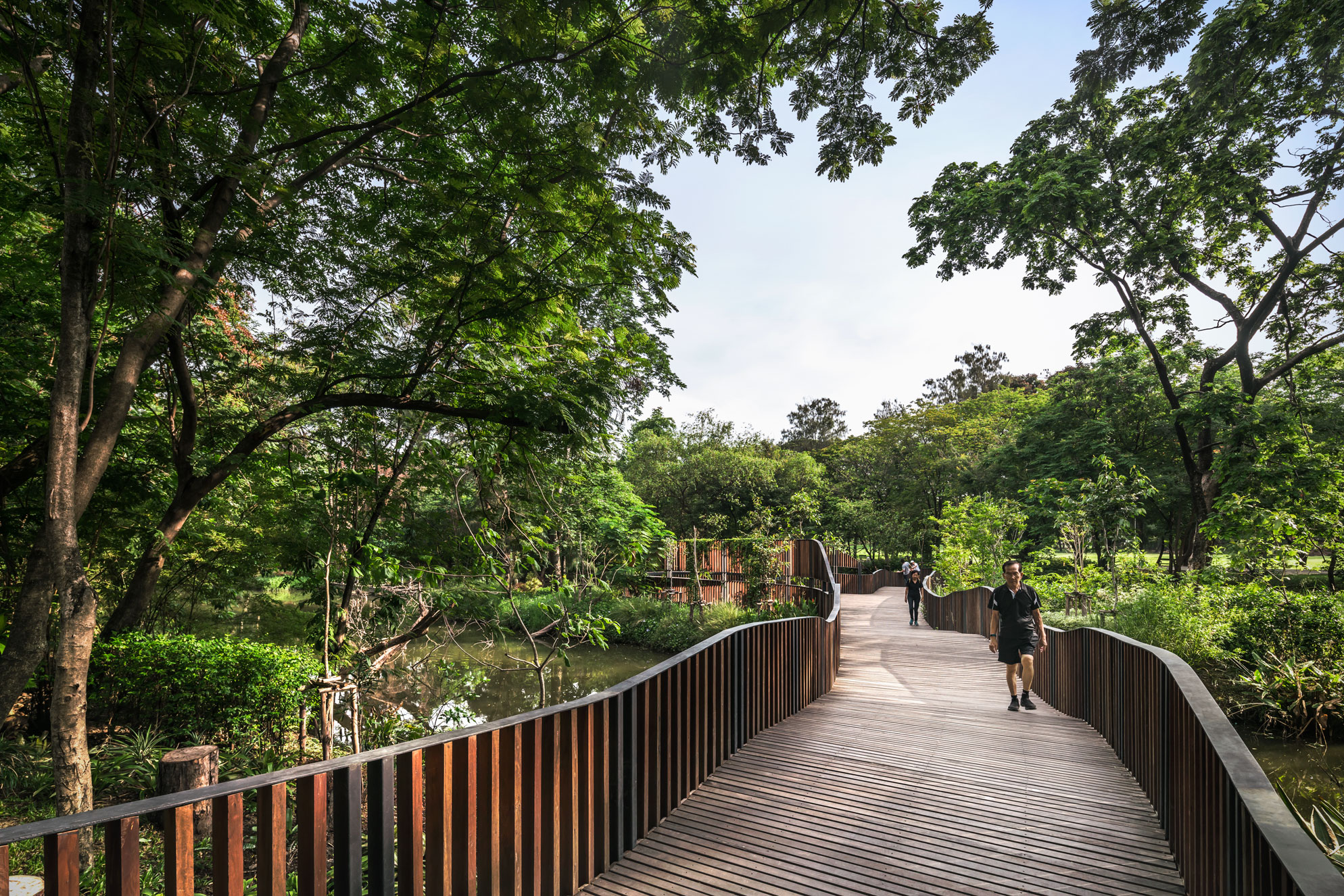
? Wison Tungthunya
Queen公園的游客數(shù)量在三個(gè)公園中最少�,原因來(lái)自于公園的交通可達(dá)性的不足,大部分來(lái)訪者主要是利用自駕車(chē)��。因?yàn)镴J公園和周邊道路�����,Queen公園被迫與公共交通系統(tǒng)分割,與Rotfai公園也因中間河道而割裂��。與Rotfai公園僅用一座位于Queen公園一角的臨時(shí)鋼橋鏈接�。
與游客人數(shù)不同��,Queen公園擁有曼谷城市內(nèi)種類(lèi)最為豐富的植物群���,收集和展示著整個(gè)泰國(guó)的本地植物群�����。根據(jù)泰國(guó)鳥(niǎo)類(lèi)保護(hù)協(xié)會(huì)的調(diào)查���,公園的生物多樣性也吸引了大量的鳥(niǎo)類(lèi)。Queen公園將位于公園東北部臨近Rotfai公園邊界的區(qū)域定位“鳥(niǎo)類(lèi)保護(hù)區(qū)”�����,使區(qū)域內(nèi)植被自然生長(zhǎng)����,堆積在一旁的落葉和樹(shù)枝為昆蟲(chóng)提供食物和庇護(hù)所?����?菟赖臉?shù)枝被放在護(hù)城河的淺水中,為海龜���,蜥蜴和鳥(niǎo)類(lèi)提供棲息地�����。盡管受到觀鳥(niǎo)者的喜愛(ài)����,但仍有人質(zhì)疑此區(qū)域的衛(wèi)生狀況��,認(rèn)為這里并不整潔干凈��。
The Queen Park has the least numbers of visitors due to its less accessibility, mainly only by private transportation. It is separated from mass transit system by JJ Park and a road, and from Rotfai Park by the drainage moat. The only connection to Rotfai park was by a 1 temporary steel bridge from one corner of the Queen Park.
In contrary to numbers of visitors, Queen Park has the most variety of plant species among all Bangkok’s public parks as its main purpose is to collect and exhibit native vegetation from throughout Thailand. Its biodiversity also attracts most variety of birds as surveyed by The Bird Conservation Society of Thailand. The park dedicated the northeastern portion next to its boundary to Rotfai Park to be ‘Bird Sanctuary’ where vegetation are allowed to naturally grow, fallen leaves and branches are stacked to provide food and shelter for insects and dead trees are left in the moat’s shallow water for the turtles, lizards and birds to perch. Although well known among bird watchers, the area was considered untidy or dirty by some.
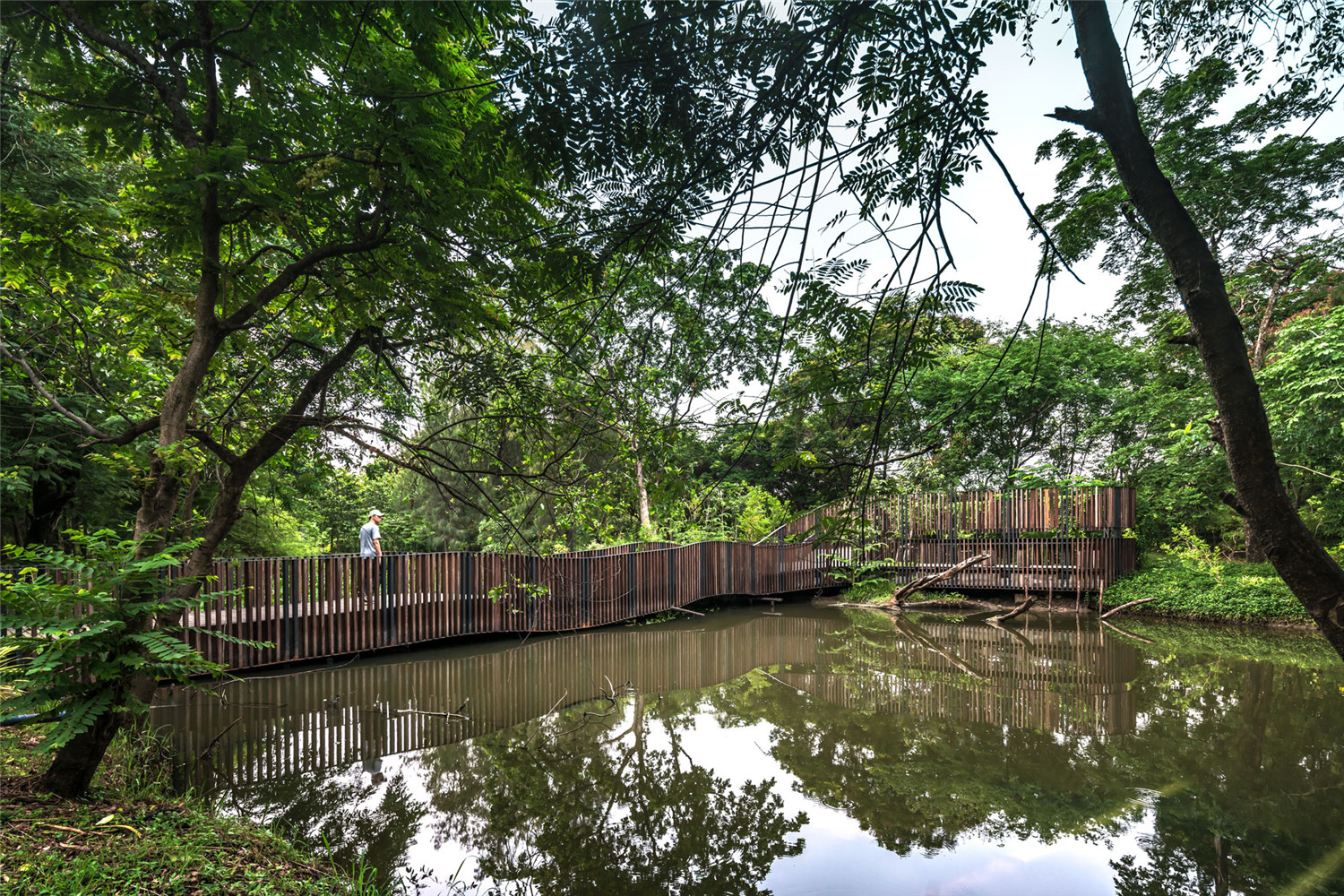
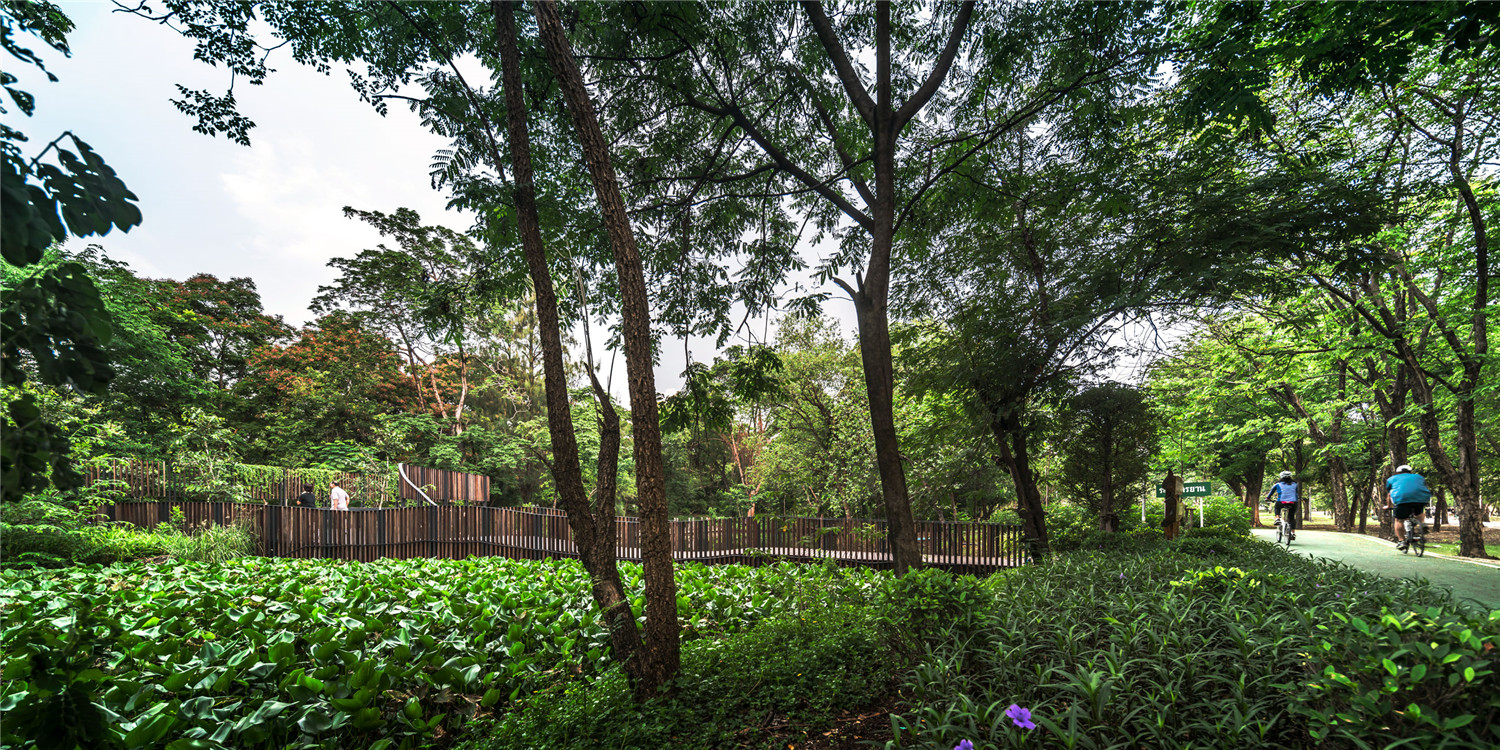
? Wison Tungthunya
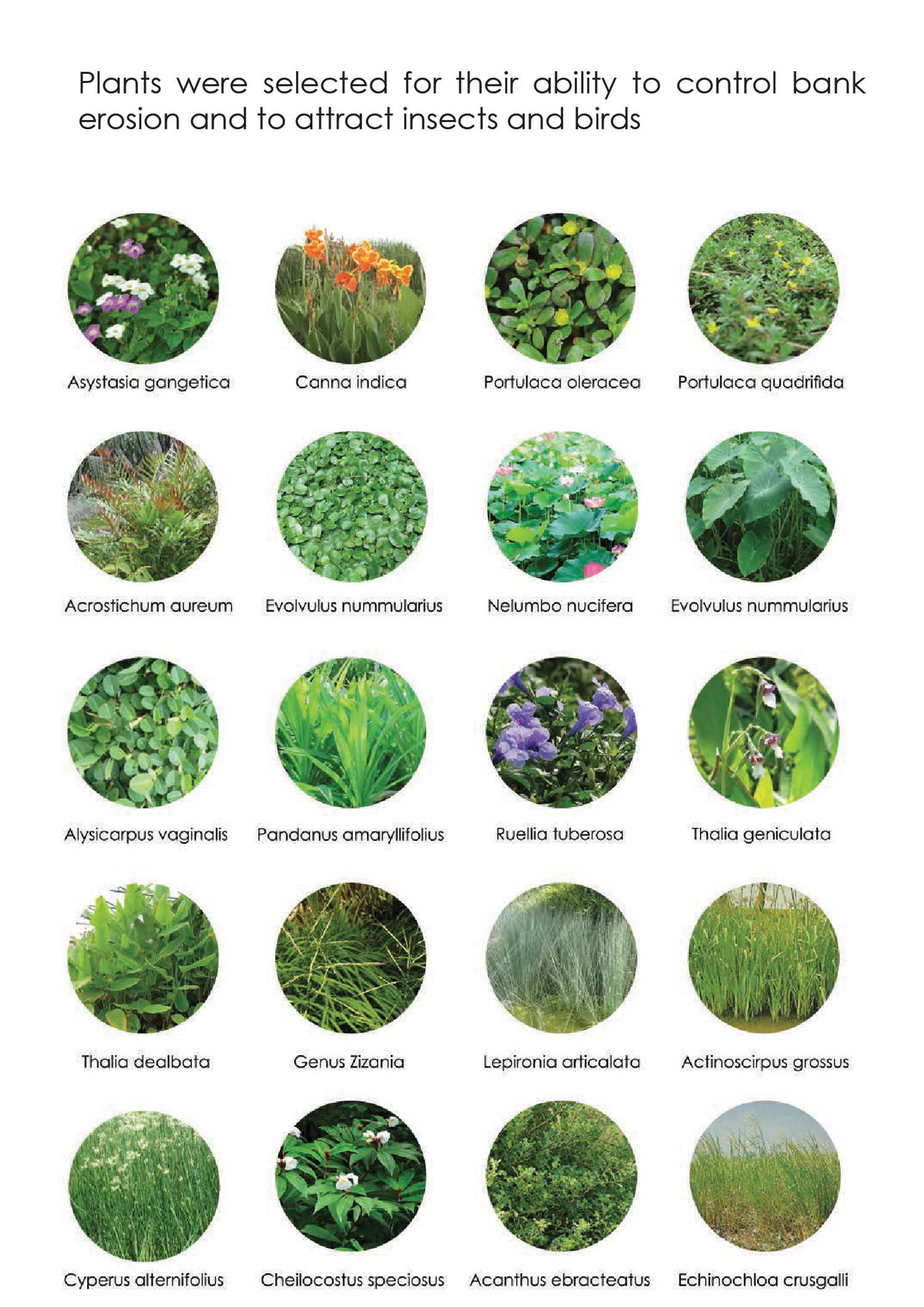
? shma
景觀設(shè)計(jì)師于2014年向Queen公園董事會(huì)提出在Queen公園南端建設(shè)“鳥(niǎo)翼橋”的方案�����,作為連個(gè)三個(gè)公園的“實(shí)驗(yàn)性”項(xiàng)目���,而不需要等到公園最后總體規(guī)劃方案羅定�。經(jīng)過(guò)2年的審批流程�����,公園管理處批復(fù)了60,000美元的預(yù)算,而H.M.董事會(huì)資助了公園的植被預(yù)算����。“鳥(niǎo)翼橋”于2016年8月正式向公眾開(kāi)放��。
It is in the south end of the Bird Sanctuary that “The Bird Wave Bridge” was proposed by the landscape architect to the director board of the Queen Park in 2014 as the ‘trial’ connection to enable real use if the 3 parks are to be joined without having to wait for the realization of the whole masterplan. After 2 years of approval process, the 60,000 USD budget for the bridge was granted by Public Parks Department and the softscape budget was funded by H.M. Queen Sirikit Park Foundation. The bridge was opened to public in August 2016.
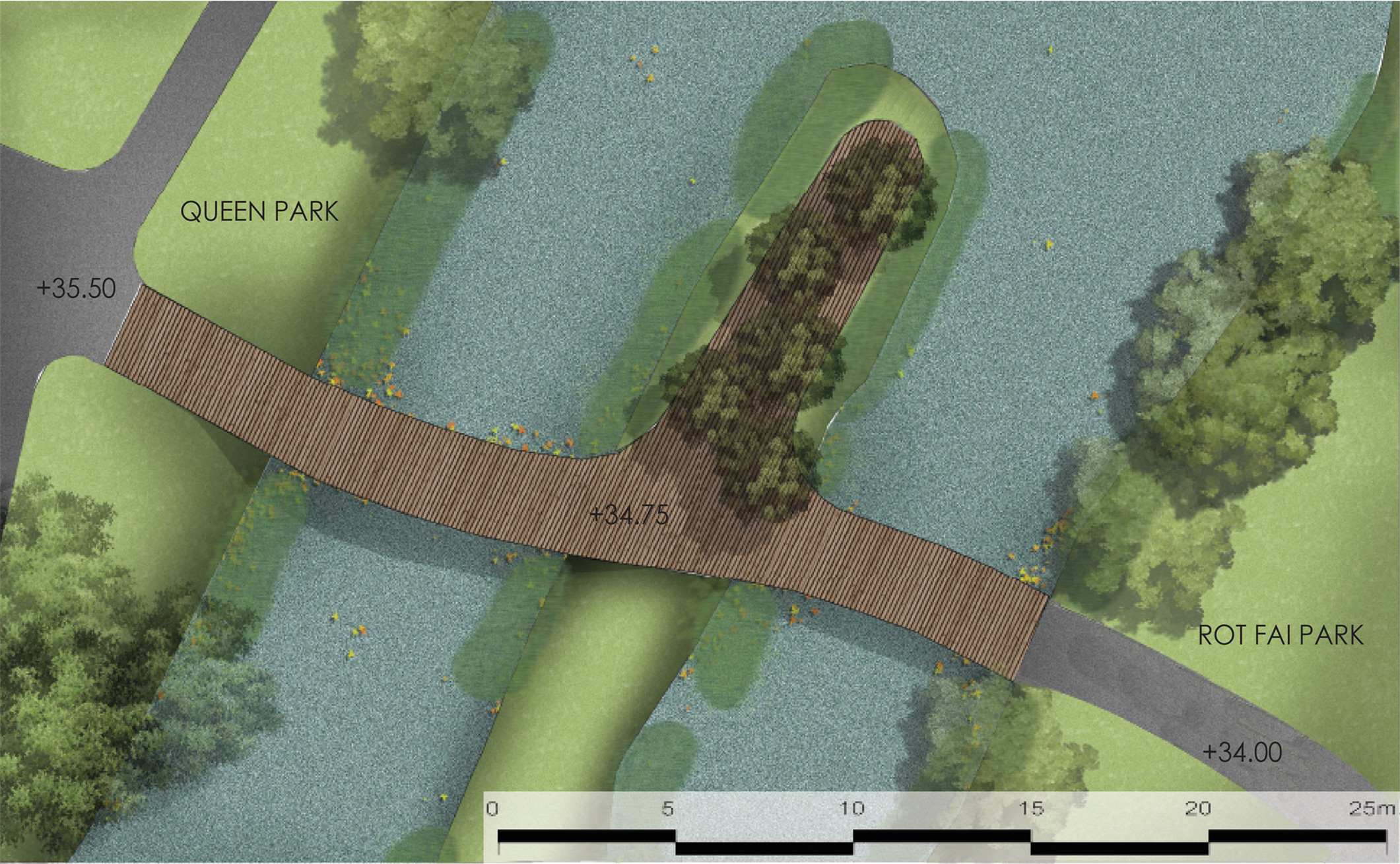
? shma
羽翼橋位于Queen公園中軸線(xiàn)的北端���,橫穿分割兩個(gè)公園的小河道,蜿蜒穿越現(xiàn)有的樹(shù)林區(qū)域�����,另一端落于地勢(shì)低2m的Rotfai公園中���。鳥(niǎo)翼橋波浪起伏的橋面也是為了緩和地勢(shì)的高度差而設(shè)計(jì)的�,同時(shí)也是保存了Queen公園內(nèi)原有橋梁的形狀���。橋梁中部橫跨鳥(niǎo)類(lèi)保護(hù)區(qū)��,創(chuàng)造了一處以樹(shù)冠為屋頂?shù)膽?hù)外空間����。由半實(shí)心的木欄圍合出了一個(gè)隱秘的觀鳥(niǎo)區(qū)。
“ 鳥(niǎo)翼橋”之名來(lái)自于自身形狀和所處環(huán)境��,并充分展示了鳥(niǎo)類(lèi)保護(hù)區(qū)的功能和重要性���。此外�,也反應(yīng)出生物多樣性與城市環(huán)境共存的另一種可能性��。
The bridge’s location is at the North end of central axis from the Queen Park and crossing over small watercourses, curving away from existing mature trees and landing in Rotfai Park at 2 m. lower elevation. The wave elevation of the bridge was employed to mitigate this level difference as well as paying homage to the traditional curved bridges in the Queen Park. The middle section of the bridge where it landed on a dike is curved out towards the Bird Sanctuary to create a room with tree crowns as roof, the semi-solid timber railing was raised around this room to form a blind with the integration of horizontal opening and wooden counter for birding activity.
The name ‘Bird Wave’ tributes to its appearance as well as the surroundings in which it is situated, giving importance to the uses and function of the Bird Sanctuary and gently introducing the different kind of public green space where biodiversity can coexist with urban environment.
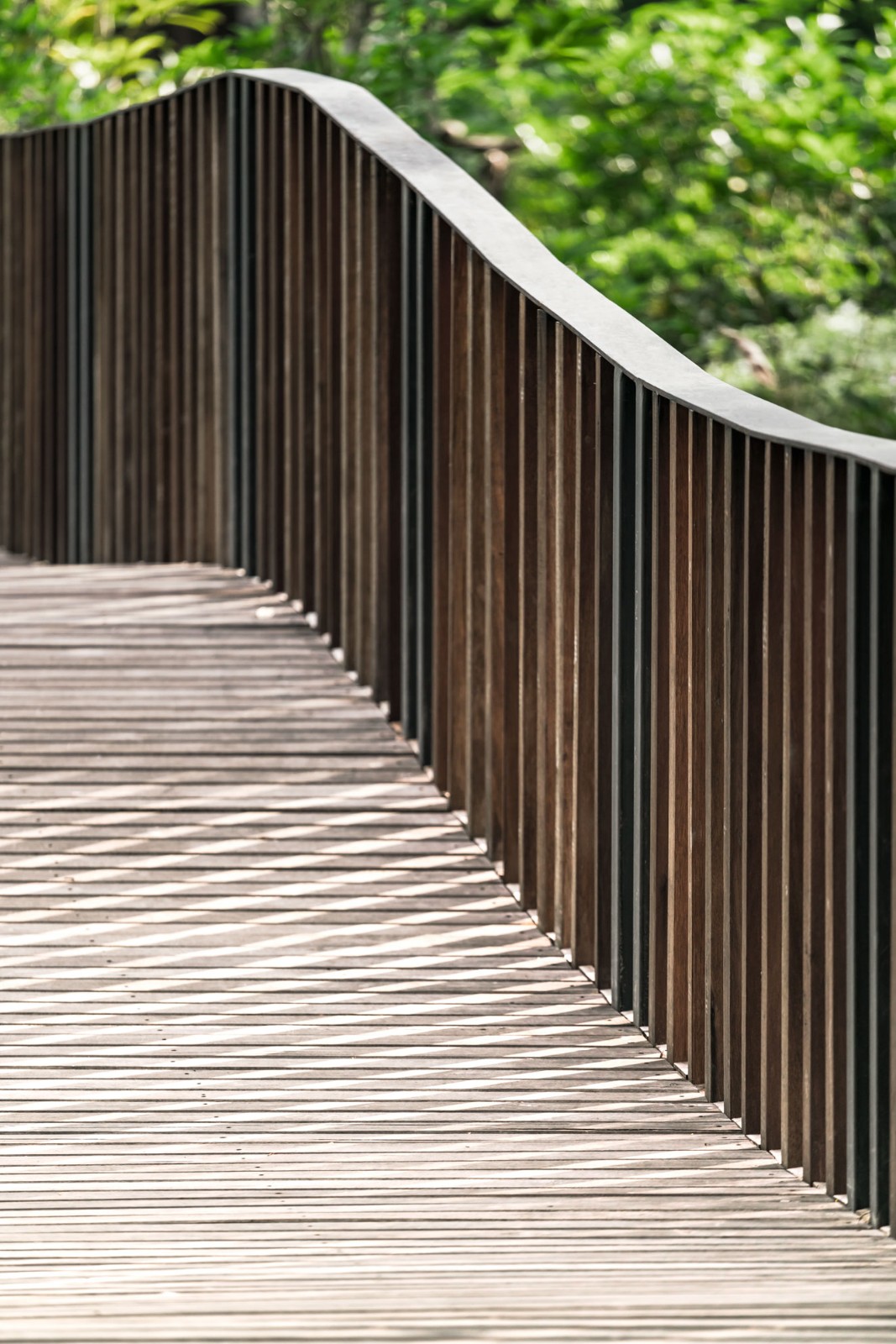
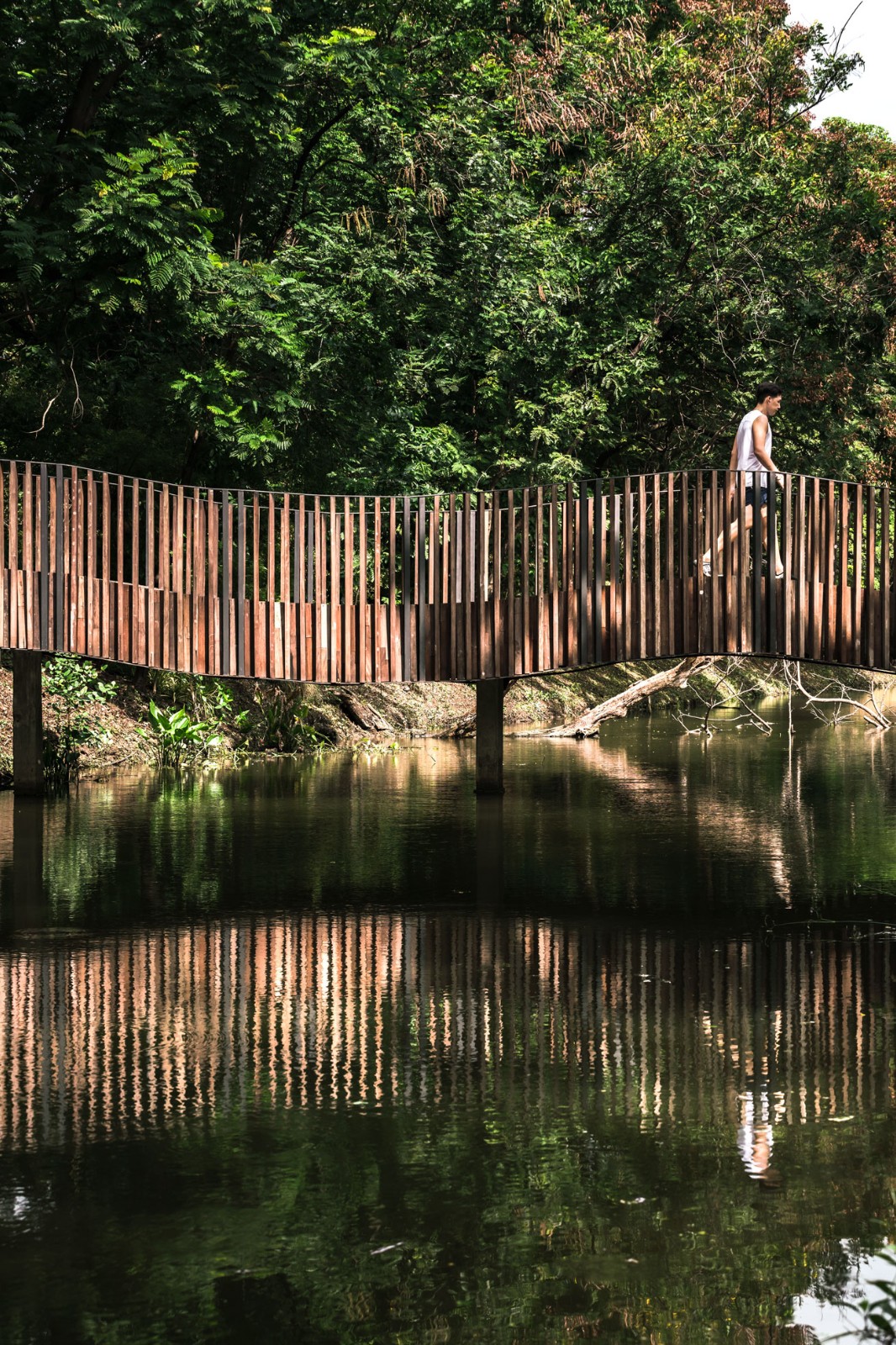
? Wison Tungthunya
鳥(niǎo)翼橋主要由3種材料制成����;基礎(chǔ)和支柱由鋼筋混凝土,黑色噴漆鋼用在了橋面結(jié)構(gòu)上���,地板和扶手使用了風(fēng)化木材��。因建設(shè)過(guò)程會(huì)影響周邊環(huán)境���,在施工過(guò)程與與泰國(guó)鳥(niǎo)類(lèi)保護(hù)協(xié)會(huì)進(jìn)行和合作,在周?chē)匦略O(shè)計(jì)增加了適合小動(dòng)物適合棲息的地點(diǎn)�。例如,在沿河緩坡處設(shè)計(jì)了適合棲息和覓食的空間,并種植了多種開(kāi)花灌木和樹(shù)木�����,保護(hù)斜坡同時(shí)吸引昆蟲(chóng)���。最后���,項(xiàng)目?jī)H剩籌資完善指示牌了����。
盡管已經(jīng)達(dá)到連接兩個(gè)公園并吸引更多訪客目的��,但是只有時(shí)間才能證明這種物理上連接的形式是否是一次成功的嘗試�����,是否在未來(lái)復(fù)雜的公共項(xiàng)目中借鑒�����。
The bridge is primarily constructed with 3 materials; reinforced concrete for the footing and column, black painted steel for above ground structure and weathered timber for flooring and railing. The surrounding landscape which was affected by construction was re designed in consultation with The Bird Conservation Society of Thailand to increase suitable living condition for small animals, banks were gently sloped into the water to provide feeding and refuging environment and various flowering shrubs and trees were planted to protect slope and attract insects. The next step to fully complete the project is fund raising to provide interpretive signage.
Even though the bridge is achieving its purpose to connect 2 parks and attract more users, but only time will tell whether or not its humble goals to bring to public’s attention the other possible forms of public parks and to convey the idea of direct solution approach to the complicated public projects can be reached.
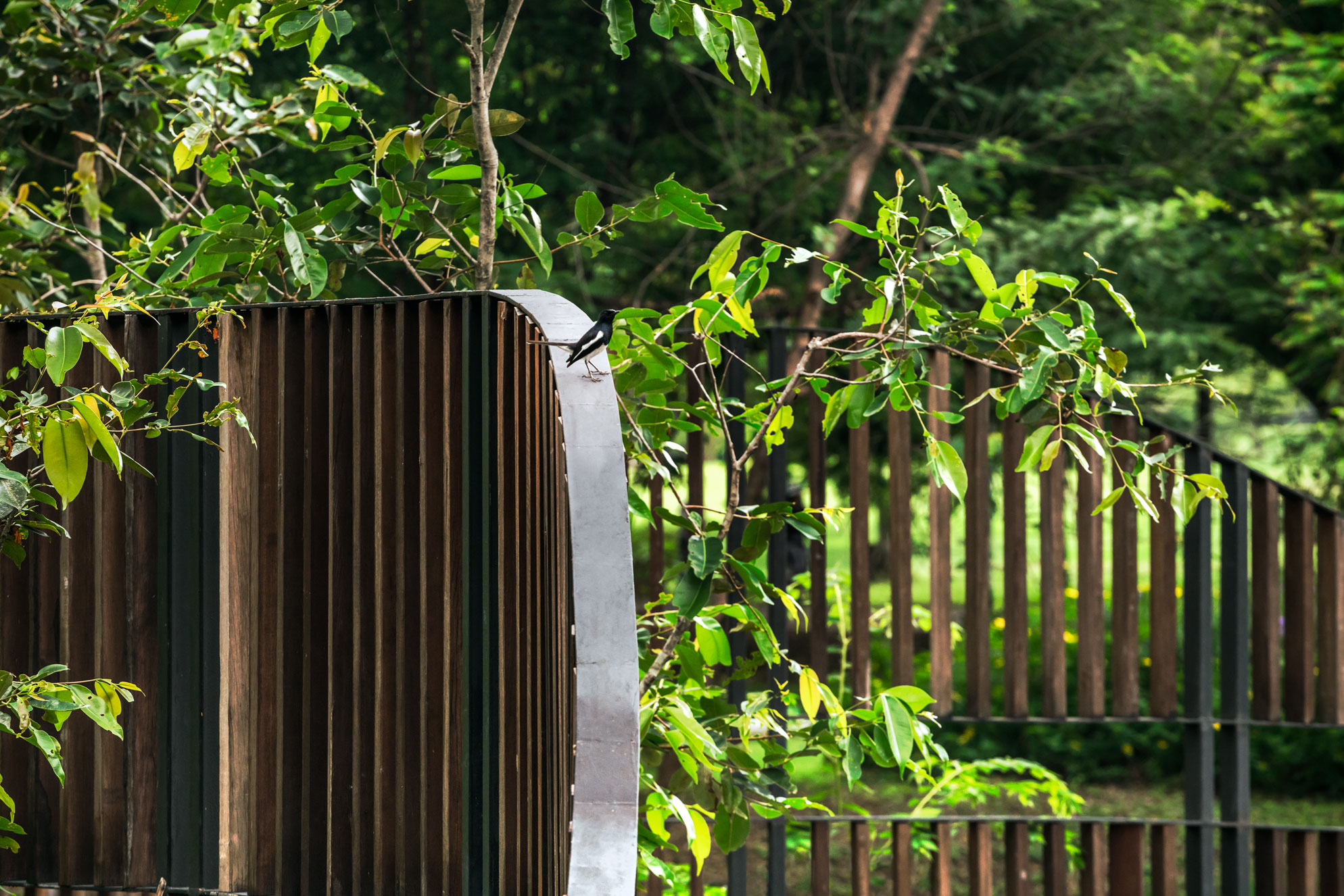
? Wison Tungthunya

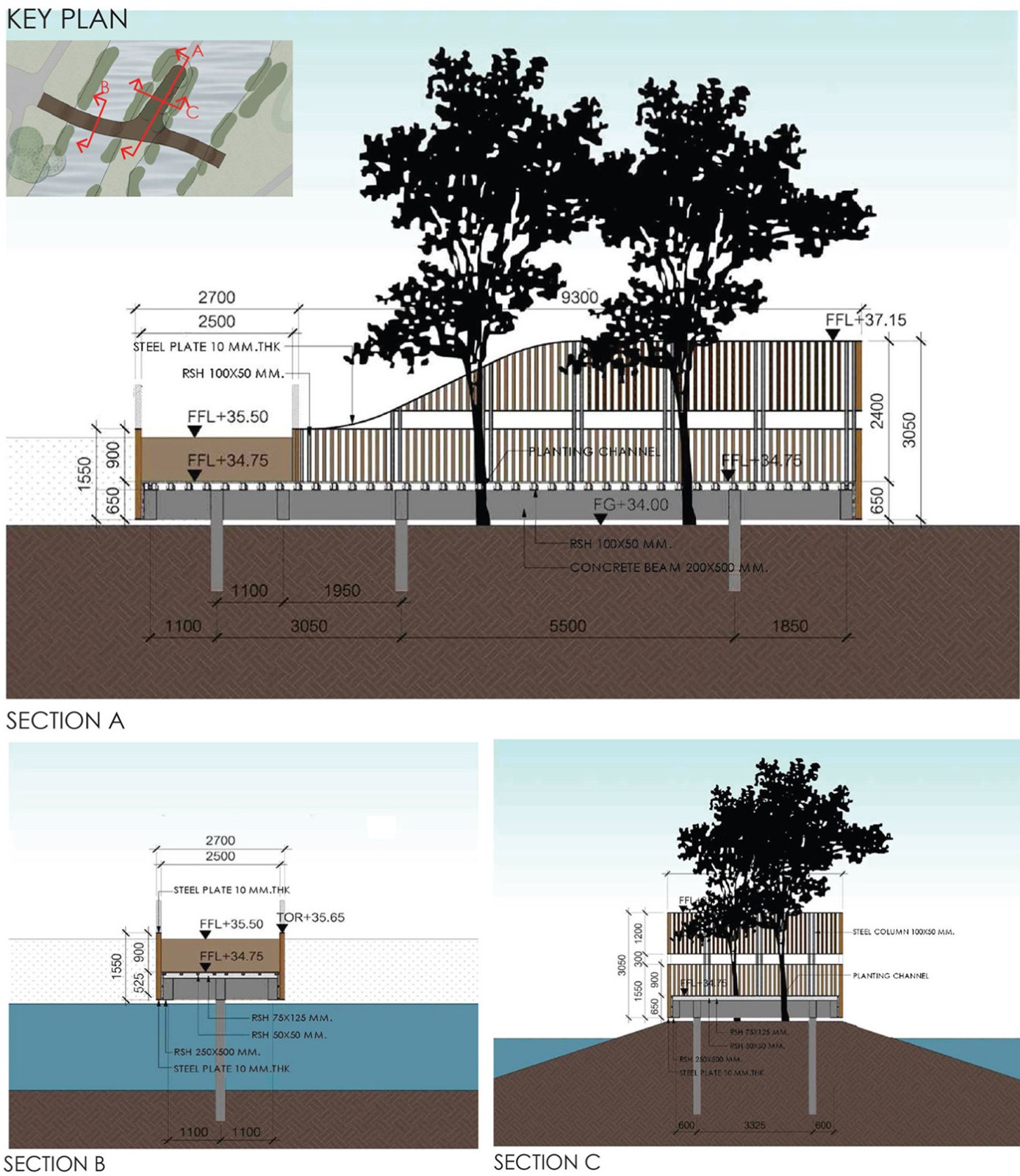
? shma
Name of Project: Bridging the Gaps
Design Director – Namchai Saensupha
Landscape Architect – Charnchai Chitpatanapaibul
Architect: Crown Property Bureau
Client & Developer : H.M. Queen Sirikit Park Foundation (Public Parks Department)
M&E : Crown Property Bureau
C&S Engineering: Crown Property Bureau
Project Type : Park
Site Area : 7,354 sq.m.
Completion Year : 2016
Location : Between Queen Sirikit Park and Rot fai Park,Bangkok Thailand
Photograph Credit: Mr. Wison Tungthunya
版權(quán)聲明:本文版權(quán)歸原作者所有����,請(qǐng)勿以景觀中國(guó)編輯版本轉(zhuǎn)載�。如有侵犯您的權(quán)益請(qǐng)及時(shí)聯(lián)系��,我們將第一時(shí)間刪除���。
投稿郵箱:contact@landscape.cn
 京公海網(wǎng)安備 110108000058號(hào)
京公海網(wǎng)安備 110108000058號(hào)
















